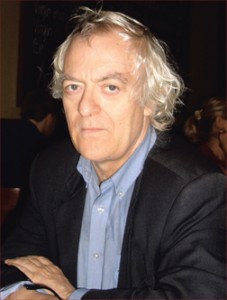In life we often make our decisions because we simply follow the social norm. They ( social scientists ) call it‘normative behavior. So it is with medicine. We discuss our medical problems with others perhaps much the same as politics except that in FDA medicine there is only a ‘one party system’; there is no democracy. We arrive at a compromise with the ‘best of all possible worlds’ like Voltaire wrote. We give in. We simply follow the status quo. Do we listen to our own hearts? Do we dissent? The author thinks not. The author believes that Nietzsche talked about the same thing. Are we aristocrats in our decision making? Can we dare to stand alone and not follow society’s norm? Are we as Nietzsche asks aristocrats in our decision making? Do we dare to stand alone in order to face the existential? Love is like that. True love is always purely existential because it operates always in the face of great risk to the lovers who make it. The tragedy of course comes when lovers begin to compete with one another. Then comes the break-up; often due to the stresses put on the lovers by those that surround them.
Perpetually haunted for decades by his childhood experiences of his parent’s and family’s abuse toward him the author has lived most of his life in a self-created dream world. And, after receiving a humiliating rebuke from his mother in the company of his relatives and his childhood-teenage girl friend with whom he had been intimate he retreated slowly into a kind of catatonic state that would forever haunt him with cold-sweat nightmares of searching in vain to find her. What could have been their love was never to be. This dream-world that he ended up creating for himself even becomes more ironic in that in fact he’s actually made these incredible rogue scientific discoveries he’s now writing about, and suffice it to say he has albeit still uncertain somehow survived his ‘family induced’ psychosis by ‘hiding’ in Taiwan. That he’s made these scientific discoveries inspite of his madness is quite phenomenal the reasons least of which are that his scholarly work in physics itself was perceived by his peers to be ‘less than stellar’ and he was in fact thought to be the least likely to make this kind of discovery in bio-physics or any other physics for that matter; but in fact he has made them and has now published them here in this book.
In short the author has decided to cling to that memory of that violent day when his dreams of physical love and its beauty were forever destroyed, so that he may forever be defined by it. Because in fact, he believes that that fateful day is what in fact does define him. When he was a child and later early teenage his most favorite directions were those which pointed in the direction of his maternal grandparent’s American ‘enclave’; that small city (S.C.) in which he met her, one teenage summer and began to love her. These directions were South and West and so has became Southern Jameson West!

